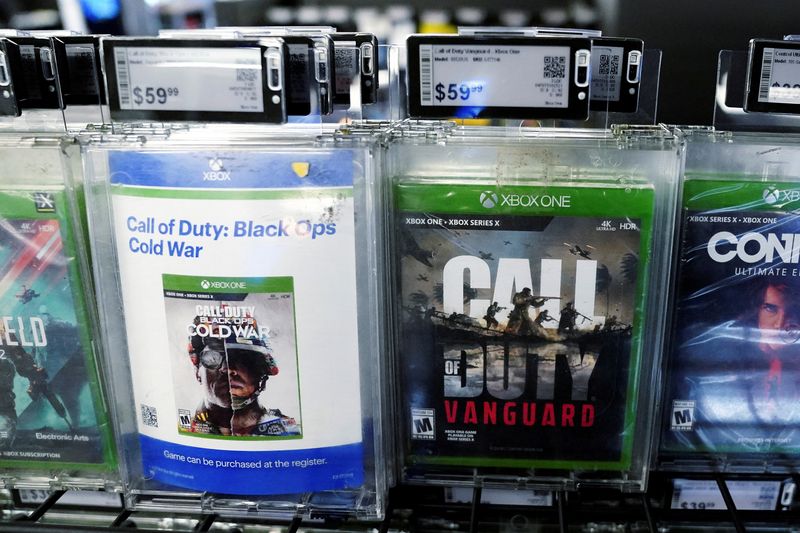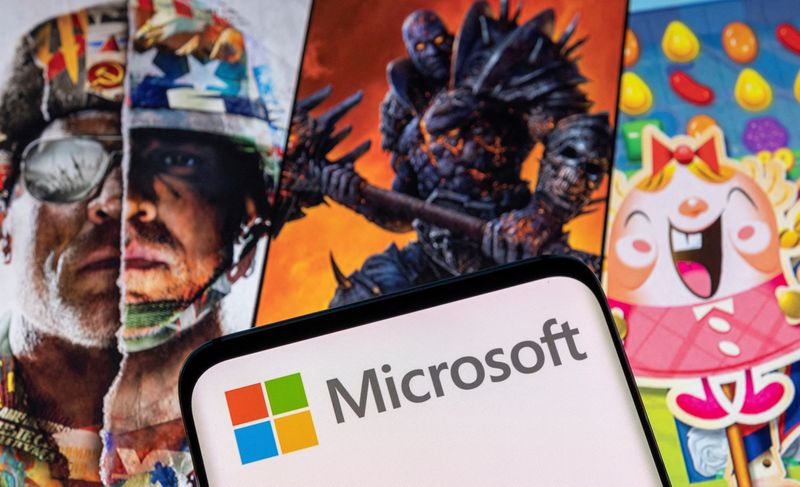By Mike Scarcella
(Reuters) - Microsoft Corp (NASDAQ:MSFT) evaded a potential early legal obstacle in its $69 billion deal to acquire "Call of Duty" videogame maker Activision Blizzard Inc (NASDAQ:ATVI), when a U.S. judge on Friday refused to allow gamers in a private suit to preliminarily block the acquisition.
The private plaintiffs sued Microsoft in California federal court in December to enjoin the deal, which they called harmful to competition.
U.S. District Judge Jacqueline Scott Corley in San Francisco federal court said in a ruling issued late on Friday night that the video gamers had not shown they would be "irreparably harmed" if the merger were allowed to proceed before she rules on the merits of their case.
Microsoft and its lawyers contend the acquisition would benefit consumers.
Corley pushed back on the gamers' allegation that Microsoft would limit availability of the game. The judge said there was no evidence Microsoft could make current versions of "Call of Duty" stop working after the planned merger, Corley wrote.
"The day after the merger they can play exactly the same way they played with their friends before the merger," Corley wrote. The judge also said "it is not likely" Microsoft will make any newer version of "Call of Duty" exclusive to the company's platform prior to a ruling on the merits of the deal.
A Microsoft spokesperson on Monday did not immediately respond to request for comment.
A lawyer for the gamers said on Monday they will press on with their challenge to the deal despite losing this preliminary round.
Joseph Alioto said the court concluded that a preliminary injunction "was not necessary at the moment," but said the "evidence is very strong" that the proposed acquisition violates U.S. antitrust law.
The court's order comes just days after Microsoft won EU antitrust approval. The deal faces regulatory scrutiny by the U.S. Federal Trade Commission, and also in China and South Korea.
British competition authorities rejected the deal, which would be the largest-ever in the gaming industry. Microsoft faces a May 24 deadline to appeal the decision.
U.S. antitrust law allows private plaintiffs to sue over mergers and acquisitions.
Corley dismissed the gamers' first lawsuit in March, ruling that plaintiffs had not offered adequate factual support for claims that the deal would violate U.S. antitrust law.

She allowed the plaintiffs to bring an amended complaint. Microsoft's bid to dismiss the case is pending.
The case is DeMartini v. Microsoft Corp, U.S. District Court, Northern District of California, No. 3:22-cv-08991.
